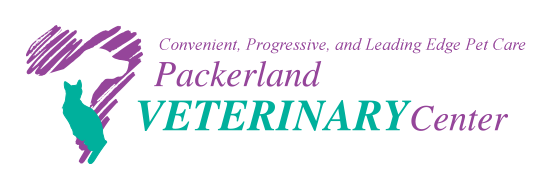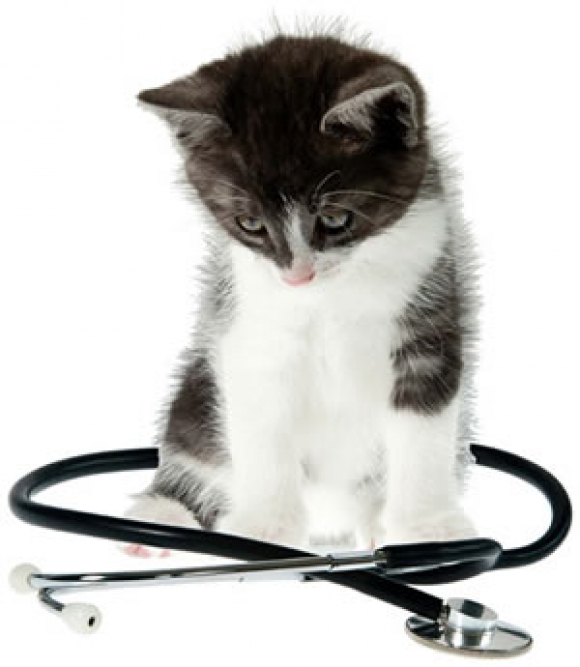


ASK US
Good Healthcare for Cats Part II
 Last month we talked about what can be done here at Packerland Veterinary Center to keep your cats healthy. This month, we will talk about what you can do at home.
Last month we talked about what can be done here at Packerland Veterinary Center to keep your cats healthy. This month, we will talk about what you can do at home. - Nutrition- We can help you determine what food and how much to feed your cat at home, but how you offer the food is important, too. Feeding your cat in a quiet area (no dogs, kids, etc. to disrupt them) is important. Offering food in puzzles or food balls makes eating fun, as well as provides intellectual stimulation for your cat.
- Environmental Enrichment- Cats need stimulation and comfort to help maintain good health. Make sure you provide toys, hiding spots, scratching posts, and elevated perches for your cat. Make sure you make time for one-on-one play as well- this is good for both of you and also allows you to notice changes in your cat's behavior much quicker.
- Litter Boxes- Provide one litter box per cat plus one extra. Cats usually prefer open litter boxes in quiet areas with unscented, clumping litter. Scoop the box once daily and don't change litter- cats are quite finicky and litter changes can cause problems.
- Grooming- Cats generally keep their coats in good condition, but some need additional brushing to prevent matts. If your cat has nails, we can show you how to trim them.
- Travel and Carriers- This is best when started young, but older cats can be conditioned as well. Leave the carrier out at all times so your cat can check it out. Put your cat in the carrier and carry him/her around the house for a short time (with treat rewards when you're done). Work up to getting your cat in the car for short rides so the car is not always associated with a trip to the vet.
Information modified from the American Association of Feline Practitioners, Kelly St. Denis, DVM, and Elisabeth Colleran, DVM.



